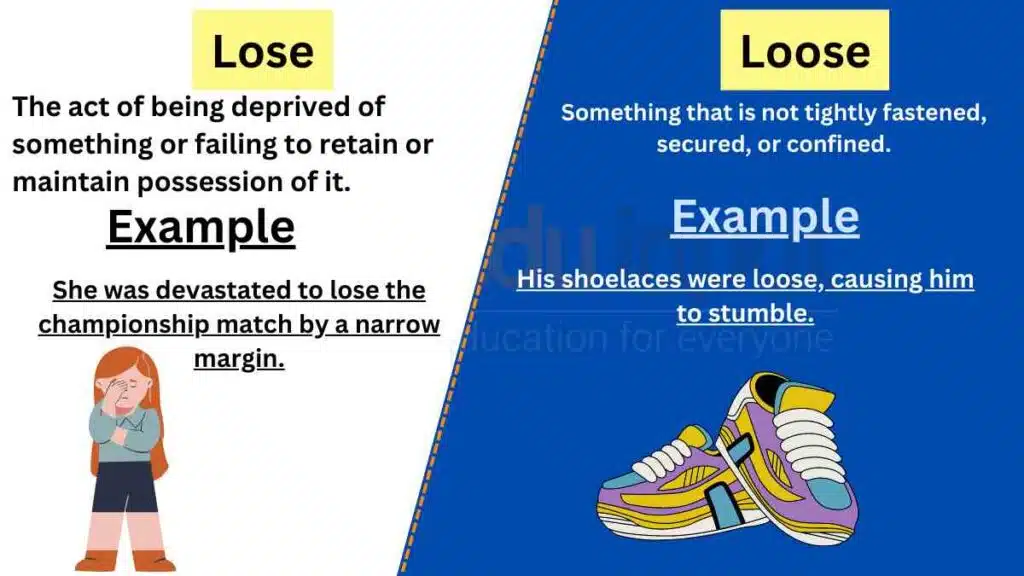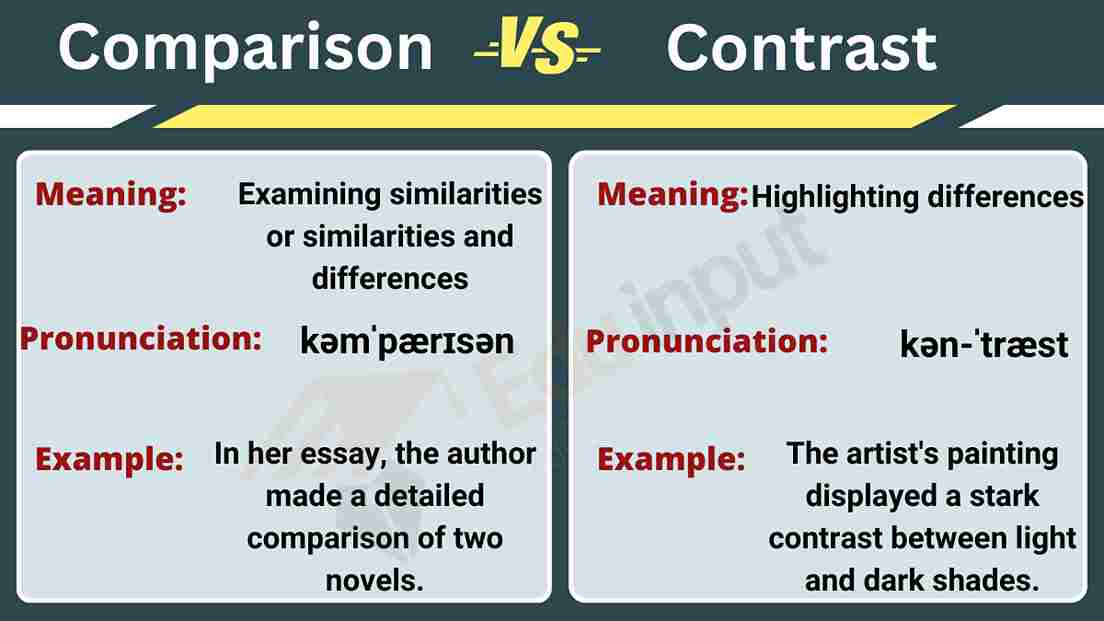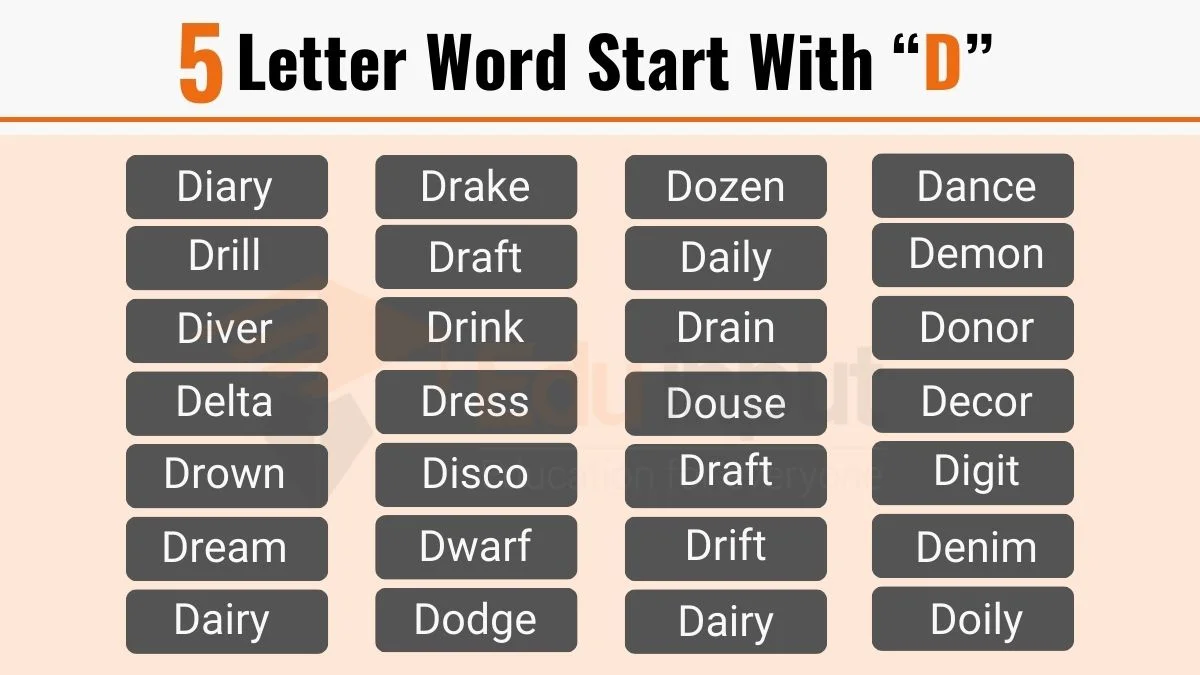Lose vs Loose-Difference Between And Examples
In the vast tapestry of the English language, certain words may appear similar but carry distinct meanings and implications. One such pair is “lose” and “loose.” Though they share a resemblance in spelling and pronunciation, their usage and significance diverge greatly. This article aims to unravel the differences between “lose” and “loose,” delving into their definitions, contexts, and implications.
By grasping their unique identities, we can navigate conversations and written text with clarity and precision. Join us as we embark on a journey to unravel the nuances between the act of misplacing and the state of being unrestrained.

Meanings and Examples
Lose Meaning
The meaning of “Lose” refers to the act of being deprived of something or failing to retain or maintain possession of it. It can also describe a situation where one fails to win or is defeated in a competition or game.
Lose Examples
- “I often lose my keys; they seem to vanish into thin air.”
- “She was devastated to lose the championship match by a narrow margin.”
- “If you don’t study, you may lose your chance to pass the exam.”
Loose Meaning
The meaning of “Loose” describes something that is not tightly fastened, secured, or confined. It signifies a lack of restraint or tightness and can also refer to something that is relaxed, casual, or not strict.
Loose Examples
- “His shoelaces were loose, causing him to stumble.”
- “She prefers to wear loose clothing for comfort and ease of movement.”
- “The regulations on the use of cell phones in the office are quite loose.”
Difference Between Lose and Loose
| Lose | Loose | |
| Meaning | To be deprived of or fail to retain something | Not tightly fastened or confined, lacking restraint |
| Example | “I often lose my keys; they seem to vanish into thin air.” | “His shoelaces were loose, causing him to stumble.” |
| Usage | Misplacement, defeat, deprivation | Lack of tightness, relaxation, lack of strictness |
| Context | Possessions, competitions, games | Physical objects, clothing, regulations, guidelines |
Usage in a Paragraph
The word “lose” evokes a sense of misfortune and disappointment, reflecting the act of being deprived of something or failing to retain it. Losing possessions, such as keys or important documents, can lead to frustration and a frantic search to recover them. Additionally, in the realm of competitions or games, losing signifies defeat, often accompanied by feelings of sadness or a desire for improvement.
In contrast, “loose” pertains to a state of lacking tightness or being unrestricted. It can describe physical objects that are not tightly fastened or secured, like loose shoelaces that pose a tripping hazard. Moreover, it can extend to the realm of clothing choices, where individuals may opt for loose-fitting garments for comfort and ease of movement. Additionally, “loose” can refer to guidelines or regulations that are not rigid or strict, allowing for flexibility and interpretation.
While “lose” and “loose” may sound similar, their meanings and contexts are worlds apart. “Lose” describes the act of being deprived of or failing to retain something, whether it’s physical possessions or victory in competitions. On the other hand, “loose” characterizes objects that lack tightness or restraint, as well as clothing choices that prioritize comfort and freedom of movement. By distinguishing between these two words, we can communicate with precision and avoid potential misunderstandings in various situations.






Leave a Reply